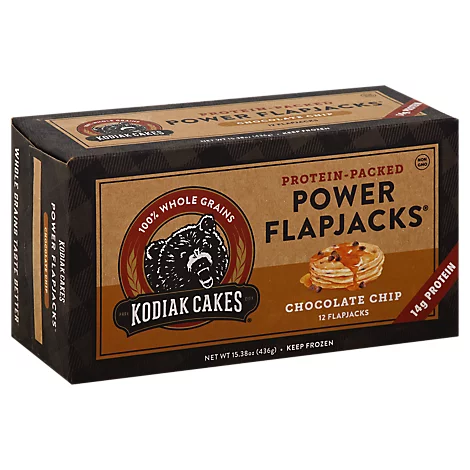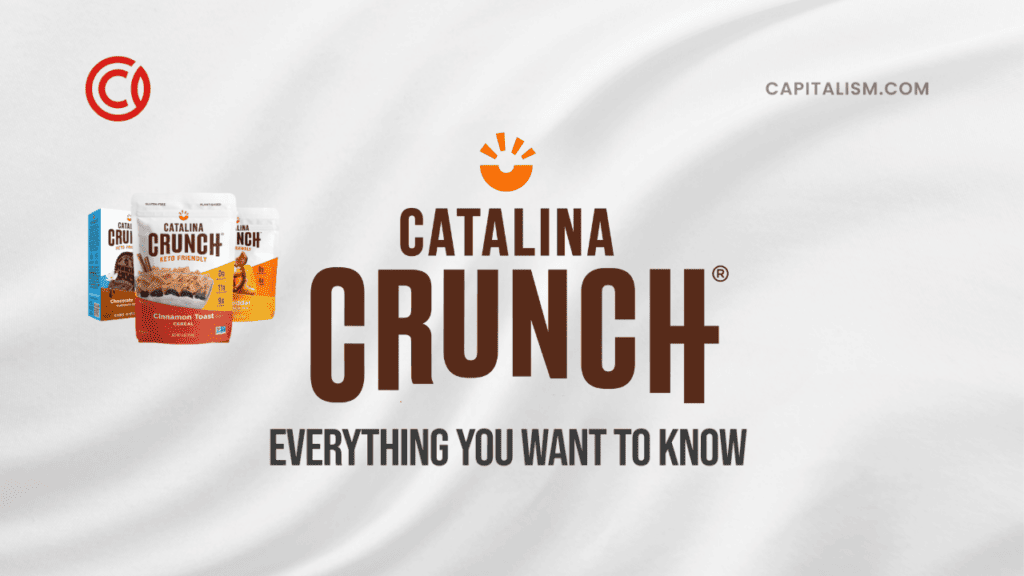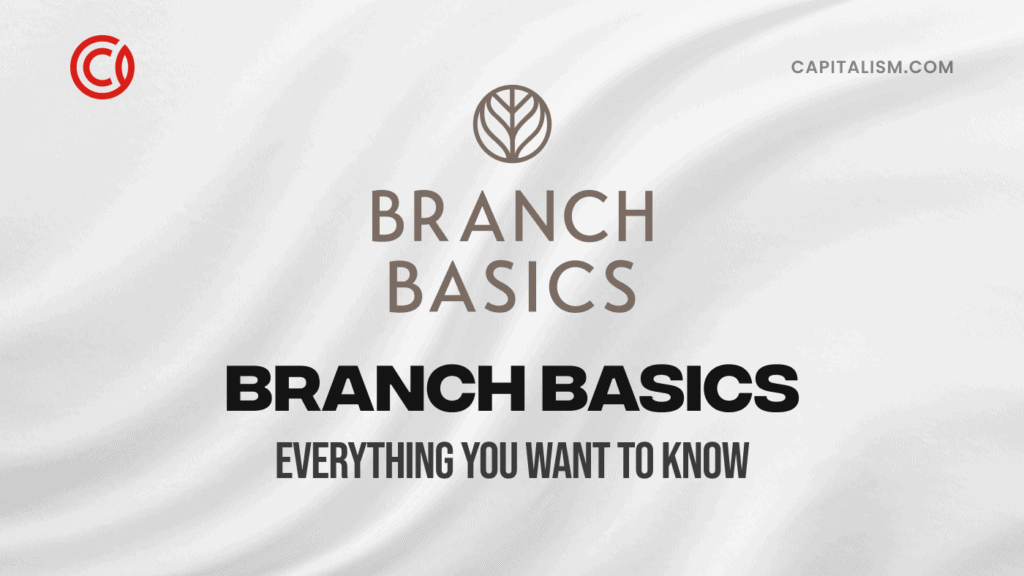Eight-year-old Joel loaded his little red wagon full of his mom's homemade whole wheat pancake mix. Knocking on doors in his neighborhood, this little salesman was hard to resist. So began the $160 million brand, Kodiak Cakes.
Now, Kodiak Cakes is a popular seller on retail giants, like Target and Amazon. Scaling way beyond that little red wagon meant overcoming decades of incredible trials. Keep reading to learn how Kodiak Cakes earned its spot as a household brand, thanks to grit, clever branding, and tenacity in seeking investors.
More Than Pancake Mix
Kodiak Cakes Highlights
The Story Behind the Pancake Mix
Growing up on freshly milled wheat and whole foods.
Joel Clark was the youngest of five kids. His mom, Penny, raised the family on healthy, whole foods — junk food wasn't a thing in the Clark household. If Joel wanted chips and cookies, he had to visit his friend's house.
"When you go to my house, and you open up the fridge, and it's full of lettuce and vegetables, and my sister used to say everything we eat is green and brown," Joel jokes.
Another thing Joel grew up on was homemade baked goods. Penny would grind wheat in the garage and use it to make whole wheat bread and pancakes. Not only was it a family favorite, but friends and neighbors loved them too.
Selling pancake mix to the neighbors
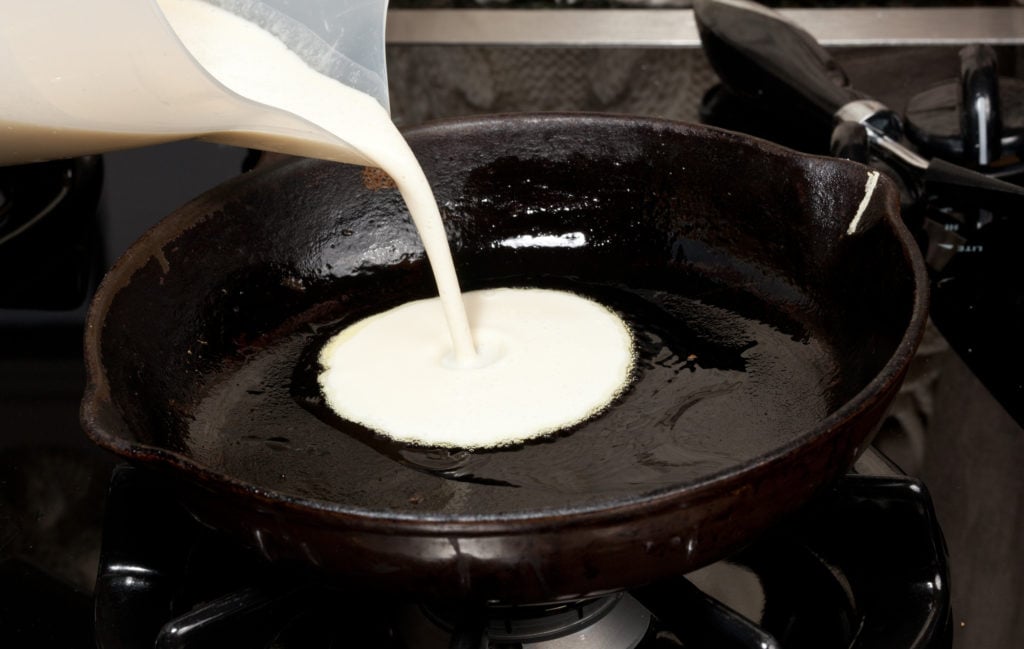
When Joel turned eight, the family decided to sell their whole wheat pancake mix around the neighborhood for extra cash. Joel would package the pancake mix into separate brown lunch bags. Penny would handwrite the instructions directly on the packaging.
Then they would load it into Joel's little red wagon. Tugging his wagon behind him, Joel went door-to-door selling the pancake mix to his neighbors in Salt Lake City. It became a kind of "summer job" for him, at just eight years old. (Definitely a precursor to the entrepreneurial path he'd embark on.)
Little did the Clark family know, Penny's whole wheat pancake mix would grow beyond Salt Lake City. It would become a multimillion-dollar brand, sold in stores nationwide.
Turning the family recipe into a family business
Seeing its popularity among the neighbors, Jon, Joel's older brother, suggested turning the family recipe into a full-on family business. Penny supported the idea, and Jon set about turning the recipe into a viable product.
He wanted his pancake mix to be convenient — add water only, and it's ready to go. Experimenting with different ingredients and sending samples to family and friends, he came up with the right pancake mix.
Name and design decisions
Jon wanted his pancake brand to reflect their lifestyle in Utah. Something rustic, wholesome, and rugged, Jon explained. After brainstorming ideas, Tim, the oldest brother, suggested "Bear Cakes." The inspiration came from when his dad lived in Alaska on a survey crew and saw Kodiak bears. From there, they modified "Bear Cakes" into "Kodiak Cakes."
As for packaging, Jon retained the brown paper bag aesthetic. The pancake mix comes in a printed kraft paper bag, sewn across the top.
Kodiak Cakes launches
Kodiak Cakes launched in 1995. Jon partnered with a local manufacturer to make and package the mix. He would then store inventory in his basement.
Jon worked a full-time job, and Kodiak Cakes was only a side hustle. With Joel's help, the brother duo went door-to-door selling their pancake mixes to stores around Utah, Wyoming, and Idaho.
"It was actually a lot of fun," Joel told CNBC Make It. "We would each take half the town … like you take one side of the town, I'll take the other, and we'll meet back here in a few hours, and we'll see if we can sell some of these pancake mixes."
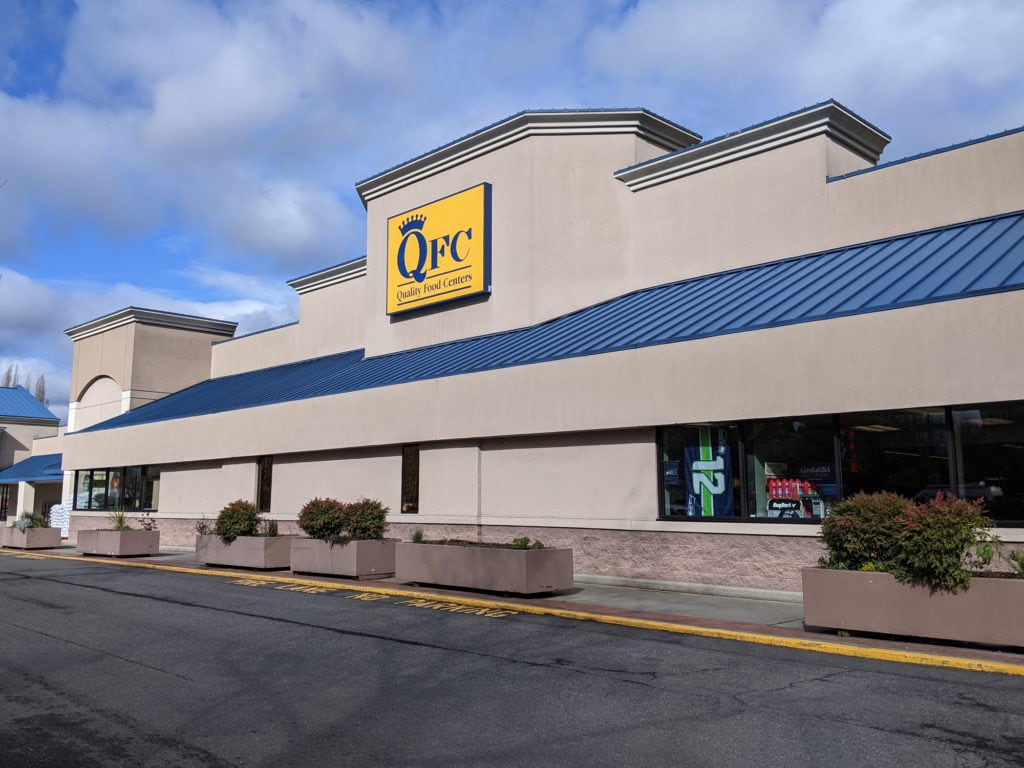
In 1997, Jon was able to secure a deal with QFC Groceries. It was the first grocery store chain to carry Kodiak Cakes. While a significant milestone, the slow progress was discouraging for Jon.
All work, no pay, and no exit
The first year generated less than $30,000 in revenue. The second year, Kodiak Cakes brought in $29,000.
Jon felt the business wasn't gaining enough traction, despite the endless hours he put into the business. Nearing 30, he worried about providing for his family. He needed a steadier income. Jon even attempted to sell the company, but it didn't work out.
So, he offered to sell the business to Joel for just one dollar. Jon immediately agreed to take over. Joel would spearhead Kodiak Cakes. Jon would focus on his career in healthcare consulting.
Joel was confident his entrepreneurial spirit would lead the brand to success. Kodiak Cakes would still only be a side hustle while Joel completed his college degree and held other jobs.
Local press coverage leads to selling out
To help gain more publicity, Joel pitched his product story to his local newspaper in Salt Lake City. Joel got the food editor on the phone and pitched Kodiak Cakes. The newspaper agreed to do the story. They obtained his press release and sent over a photographer.
When the story went live in June 2000, Joel was at work. He got a call from Dan's Grocery Store saying they sold out of his pancake mix by 10 am. They needed more!
Joel told his boss he had to leave that work today. Of course, Joel did this because he was delivering more pancake mix to the stores. This was a fantastic success for Joel.
Bootstrapping, slow progress, and the first investment
The early journey was harrowing. Joel had to rely on his personal cash reserves and stay motivated to go. Without outside financing to spur growth into high gear, the progress was slow.
"It was so many years of bootstrapping and just trying to hang in there and keep it alive and keep it going," Joel told CNBC Make It. "And we didn't really have any money to put into it, so it just kind of had to grow on its own."
Joel shared the first time he accepted outside capital — it was from Gary, his parents' neighbor. Gary loved Kodiak Cakes and always bought them from his local Dan's Grocery Store. Gary and Joel started talking, and he offered to invest $35,000 into the business. He started with $13,000 and gave him the rest when needed. Joel accepted.
Expanding to grocery stores

Wanting to put this money to good use, Joel went to work on getting into more grocery stores. He'd cold call different store headquarters, asking to speak with whoever's the buyer for pancakes. Then he'd send them some samples.
He managed to get into grocery stores around Salt Lake City, including Smith's Grocery Store and Albertsons. In 2004, Joel's biggest win was securing a deal with Safeway — Kodiak Cakes would sell from the shelves of 1,200 different locations. 2004 brought in $150,000 in revenue for the company.
That year, Joel was working as an analyst at a management consulting company. This Safeway deal convinced him that Kodiak Cakes could support him. So, he quit and worked on it full-time.
The recession hits Kodiak Cakes hard
2007 was a challenging year for everyone. Kodiak Cakes was especially vulnerable to recession-related price hikes. The price of gas, egg whites, and wheat all went up. Profit margins were slimmer and slimmer.
Things got worse. In February, Joel received a call from his vendors that prices would increase 11.5% effective immediately.
"How am I going to make this work?" he wondered. It seemed like Kodiak Cakes was a ship that was slowly sinking, and Joel didn't know where to go. Joel was in debt, didn't have savings, and had a family to provide for. Then, Joel ran into more financial trouble.
The simple error that cost $50,000
In 2009, Joel was working on a holiday promotion with Safeway. It featured one dollar off a Kodiak Cakes product. However, a system error doubled the discount to two dollars. People took advantage of this promotion, and it sold like hotcakes (sorry, not sorry). While an excellent bargain for the consumer, this was a loss for Joel. Specifically, a $50,000 loss.
Joel was devastated. After so many years sunk into the business, this was a setback he couldn't afford. He cried in his one-room office in downtown Salt Lake City.
Fortunately, Joel's dad came to the rescue. He tapped into his home equity loan for $50,000. Joel paid him back six months later.
Stepping back from Kodiak Cakes
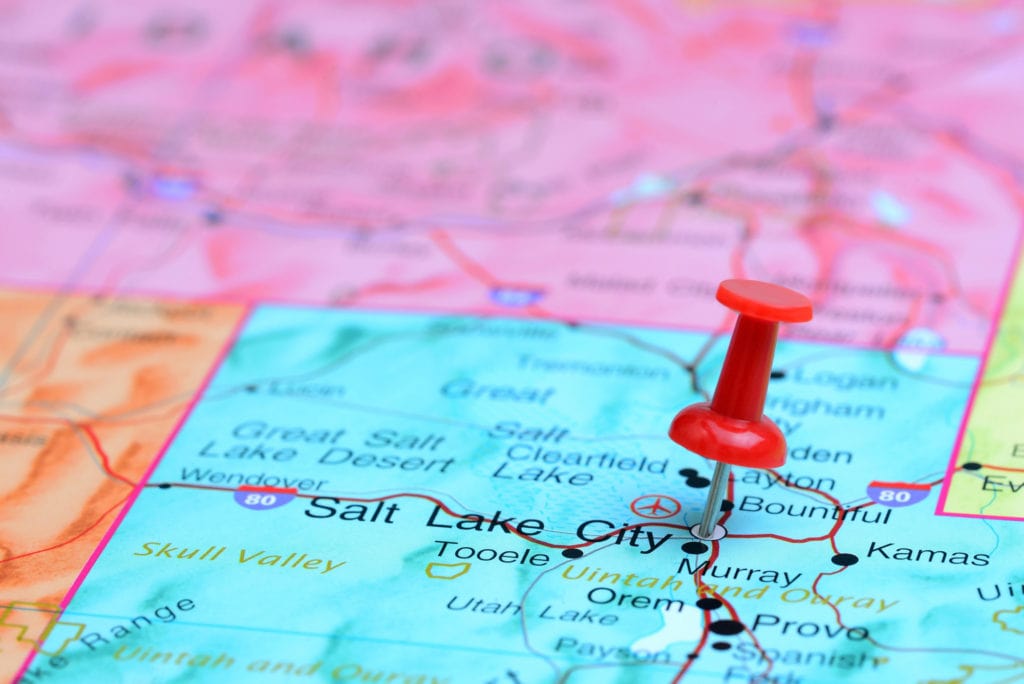
With the recent financial and emotional challenges Joel encountered, he decided to let somebody else steer for a while. Joel licensed the brand to a management company. Going forward, he'd receive royalties and let them do the heavy lifting.
Around 33 years old, Joel took on a job running a home health care agency in Salt Lake City. His new career brought in stable income, and he could offload some of the stress of running Kodiak Cakes.
However, even this didn't last long.
The company managing Kodiak Cakes wasn't working out. There were several errors, pricing mistakes, and mismanagement. This resulted in the loss of 25% in revenue and accounts.
Joel faced another decision: let go of Kodiak Cakes or take over again.
He chose the latter. He'd only been consulting for a short time, but he'd invested over a decade in Kodiak Cakes. With renewed ambition, he returned to selling pancake mix.
Onboarding a new member
For several years, Joel's dad was helping out at Kodiak Cakes. But he was ready to retire. For additional support, Joel posted a job posting on the University of Utah Career Services Department. He needed someone to kickstart Kodiak Cake's marketing strategy.
That's when he met Cameron Smith in 2009. Cameron was freshly graduated. But he had the same entrepreneurial fire Joel had when he was younger.
While at a trade show, Cameron got the buyer's name for Target and arranged a pitch meeting. Unable to attend, Joel put Cameron in charge. Although nervous (and with a shaking spatula), Cameron did a live demo of the pancake mix, and the buyer enjoyed the taste.
They decided to test it in 40 stores. Kodiak Cakes passed with flying colors. This led to a $260,000 purchase order to stock Kodiak Cakes nationwide.
While an incredible sale, Joel didn't have the money to fulfill such an order. Fortunately, Joel's dad tapped into his home equity line again and wrote Joel a check for $260,000.
By 2013, Kodiak Cakes generated $3.5 million in sales.
Joel and Cameron wanted to scale the brand further. But to do so, they'd need to do more marketing and secure more capital.
Can you catch a shark with a pancake?
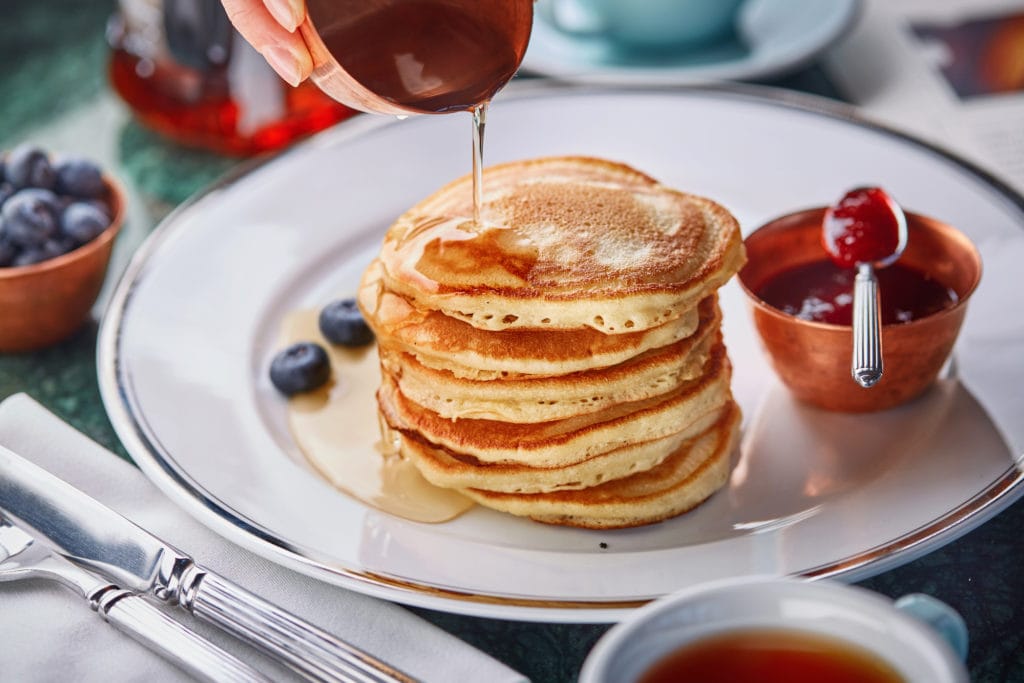
Now Chief Operating Officer, Cameron applied to appear on Shark Tank. The exposure would be good for Kodiak Cakes. Two months after emailing the Shark Tank casting website, they received a response. Kodiak Cakes would appear on season 5.
Joel and Cameron got to work, rehearsing for their pitch. They even had their friends stand in as a mock panel to judge their pitch. Moreover, Cameron and Joel studied previous episodes.
"[We] would write down all the questions we ever heard, so we would role-play each other for hours and go over and over different questions and how we would answer them," Joel told CNBC Make It.
Now, if you watched the episode, you'll know that Kodiak Cakes went all out. That included bringing their human-sized bear mascot with them on the pitch.
The sharks weren't biting that day
Joel requested a $500,000 investment for 10% interest in the company. Using this investment, Kodiak Cakes would do $20 million in sales over the next four years. The judges' responses to the requested $500,000:
Joel felt like these sharks did not see the value and potential in Kodiak Cakes. O'Leary even called out Kodiak Cakes as a simple commodity. Unable to arrive at an agreement, Joel and Cameron walked away.
"When they low-balled us, and we walked away, I actually felt sort of relief, which is kind of funny," Joel shared. "Because I think I felt like, well, they aren't on-board, they didn't see the value even close to where we saw."
No shark investment, but something better
Kodiak Cakes didn't receive any shark investments, but they gained tons of exposure and fans. Six weeks after the episode aired in April 2014, Kodiak Cakes did one million dollars in incremental revenue.
Moreover, Joel and Cameron decided it was time to launch a new product. One morning, Joel was thinking about ways to add more protein to his food. He tried putting protein powder into his pancake mix. It tasted great! This inspired a new protein-infused pancake mix.
In June 2014, Kodiak Cakes introduced Power Cakes, a whole grain, protein-packed, non-GMO whole wheat pancake. At this time, high-protein diets and fitness were gaining a lot of momentum.
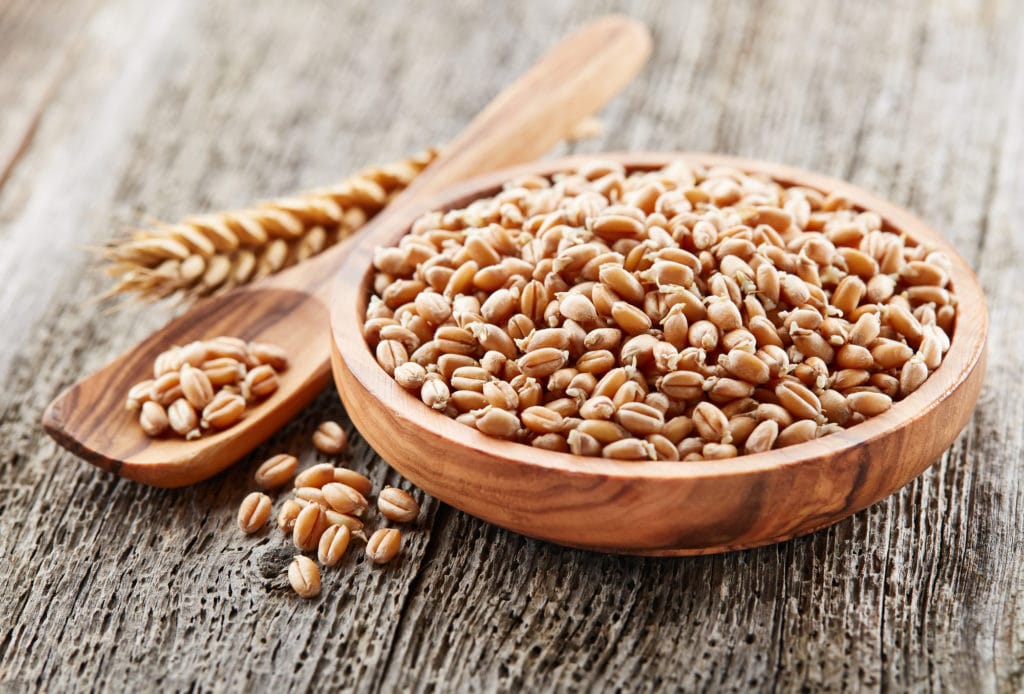
And people loved it, especially millennials and those in from the fitness crowd. Just search #KodiakProteinPancakes on Instagram, and you'll find tons of people raving about their Power Cakes.
Financing, finally
Kodiak Cakes' Power Cakes success and Shark Tank feature garnered attention from investment firms. After years of getting rejected for financing, Joel now had people seeking him out.
Joel realized it was time to bring in a partner to reduce his risk exposure. In 2016, Kodiak Cakes accepted outside investment from Sunrise Strategic Partners. This firm had tons more experience than Joel had, and he decided it was time to rely on experts to spur even more growth into his brand.
Kodiak Cakes Today
Kodiak Cakes has dozens of products, including cornbread mix, instant microwaveable mixes, waffles, and all-purpose baking mix. The company also projected $200 million in revenue for 2020. That's up from just under $160 million in 2019.
Joel and Cameron certainly proved those sharks wrong. Shark Tank's Corcoran even applauded their success.
"They bet on themselves when they walked away and have tripled their projections since! That's what makes entrepreneurs like them great. We told them they weren't worth the asking price, and they proved us wrong," Corcoran told CNBC Make It.
Considering it took over 15 years for Joel's hard work to pay off, we're inspired by his grit and dedication. It was not easy — Joel had to learn things on the fly and get bailed out by his father twice. But it was a journey worth following and admiring.
What Entrepreneurs Can Learn from Kodiak Cakes
Kodiak Cakes success came with challenges, victories, and important lessons. Let's learn what tidbits of wisdom entrepreneurs can glean from Joel's story.
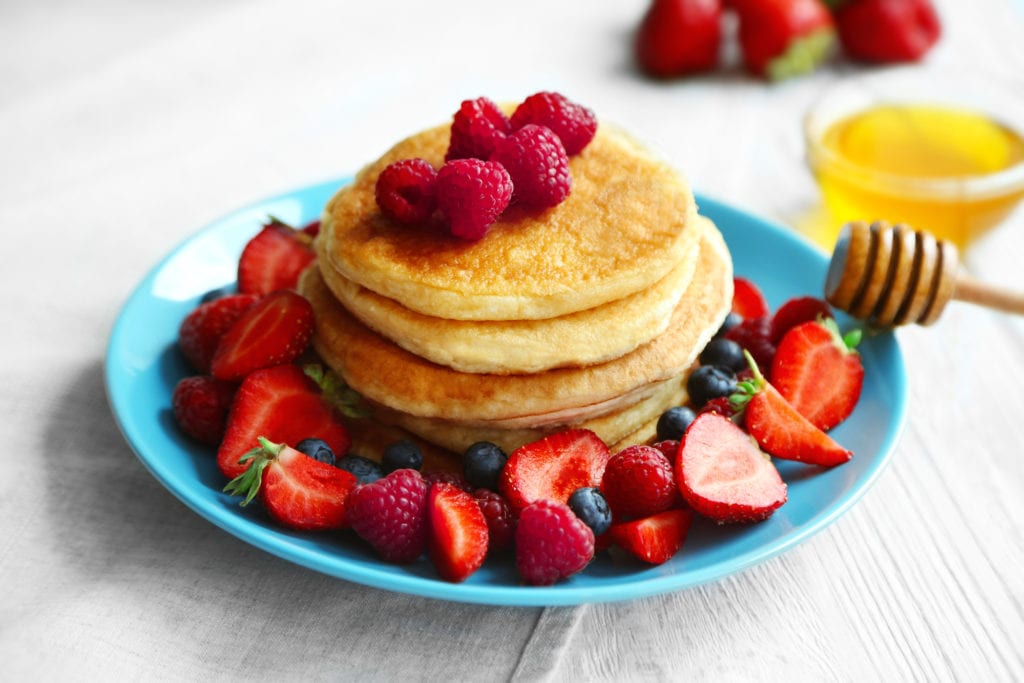
Build a brand, don’t just sell a product.
Kodiak Cakes was more than a pancake mix. Jon wanted it to reflect the "salt of the earth life" his family lived in Utah. Kodiak Cakes is likewise rustic and wholesome.
We see this in Kodiak Cakes' packaging, the influencers they work with, and their website visuals. If you visit the Kodiak Cakes "Our Story" page, you'll find a little red wagon — a nod to the company's wholesome beginnings. When people see Kodiak Cakes, Joel wants them to understand their story and vibe.
Joel shared a story with Authority Magazine about setting a booth up at Natural Products Expo West. He didn't want just another ordinary booth propping their products on a card table. He wanted to deliver the experience, and he wanted to stand out.
"The goal was to create a wooden, cabin-style structure and as we went along, we slowly became attached to the idea of having a fog machine pump smoke out of a chimney in the back," Joel said. "It was essentially non-negotiable for us, and we were confident it would be unlike anything else at the expo."
All of this was to demonstrate Kodiak Cakes' rustic, natural and wholesome branding.
Stick to your unique value proposition.
Pancakes are a favorite comfort food for many. It's also a bit of a time commitment if you have to make the pancake batter from scratch. Kodiak Cakes offers a healthier, convenient alternative with its whole wheat, just-add-water formulation.
But Kodiak Cakes was slow to pick up popularity in the beginning. Jon and Joel doubted themselves. Do people even want whole wheat options? They even considered scrapping the recipe and formulated a white flour alternative. It's a good thing they didn't move forward with it.
"'Joel, if we launch this product, it will just dilute everything that we stand for," Joel told Forbes, recalling what Jon told him. 'And we won't have a unique position in the market that we are all about.' That decision of not launching that white flour pancake mix back in 1999 was one of the best things that we ever did."
Stick to your unique branding and value proposition. Shark Tank's O'Leary didn't invest in Kodiak Cakes because he believed it was a commodity. Go the generic route and do whatever everybody else is already doing, and you definitely will be.
Research and capitalize on trends.
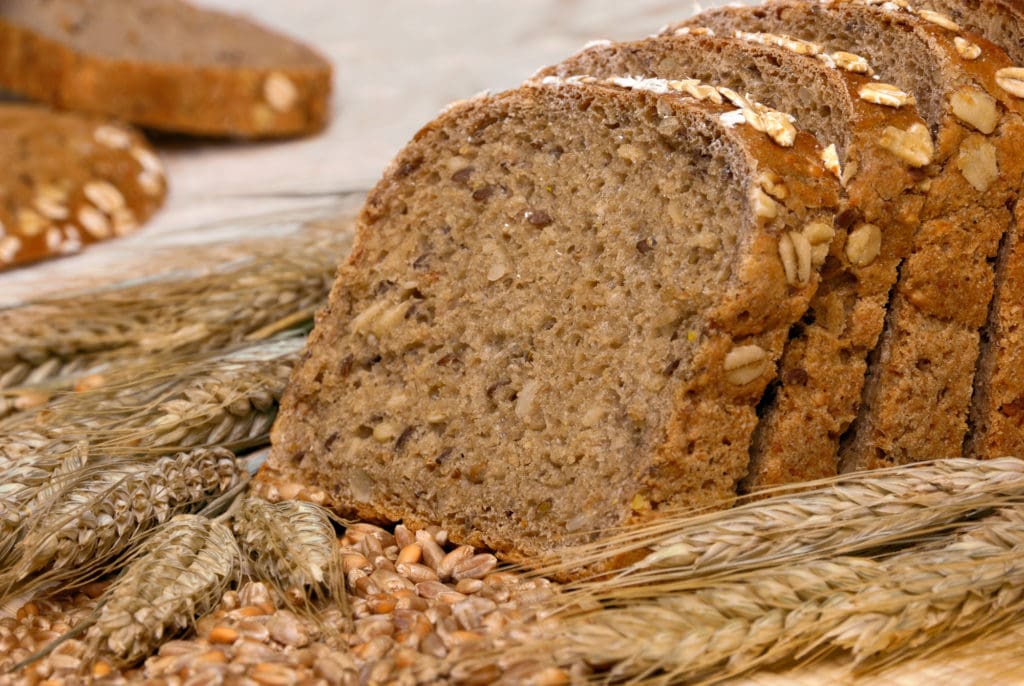
Trends evolve, and updating your products can help your brand stay relevant. Let's look at the reasoning behind Kodiak Cakes launching Power Cakes.
Around 2014, the health industry was gaining popularity. Self-care, fitness, and nutrition were growing priorities in people's lives. As a result, more people were eating whole foods, higher protein, and organic options. Cameron studied Google search trends and discovered more protein-related searches were increasing.
Even Joel was trying to get more protein into his diet. If he could add protein in his smoothie with protein powder, why not his pancakes?
"What about today's frontier that we should embrace, that we have learned about food?" Joel told Forbes. "Protein is one. So a lot of our products have higher protein in them. For us, we are really trying to elevate the standard of nutrition in the center of the grocery store. When you see people eating our product, it's a part of their getting healthier journey."
Joel and Cameron listened to what trends were growing within their target market. They saw what was in demand (higher protein) and delivered a product that met that demand.
Engage with your community, partner with influencers.
The Kodiak marketing team is intentional in its influencer marketing strategy. They prioritize like-minded partners who also promote healthy and active lifestyles. Kodiak Cakes also wants to work with fellow leaders who are passionate about their niche — or "frontier," as they like to call it.
And Kodiak Cakes takes it a step further. They meet the people they work with in person.
"We like having influencer events —that's a little something different that we do. The reason that we do that is so we can meet our influencers before we work with them, and we can build a relationship before diving into a contract. And these have shown to be incredibly successful," Lily Cozad, Kodiak Cakes influencers marketing coordinator, told Perlu.
By giving affiliate links to the influencers they work with, Kodiak Cakes can measure the value of each partner's influence. They gain a ballpark figure of how much traffic and sales an influencer offers.
Don't spread yourself too thin.
While Joel was finishing up school and operating Kodiak Cakes on the side, he took on another entrepreneurial venture: cookies.
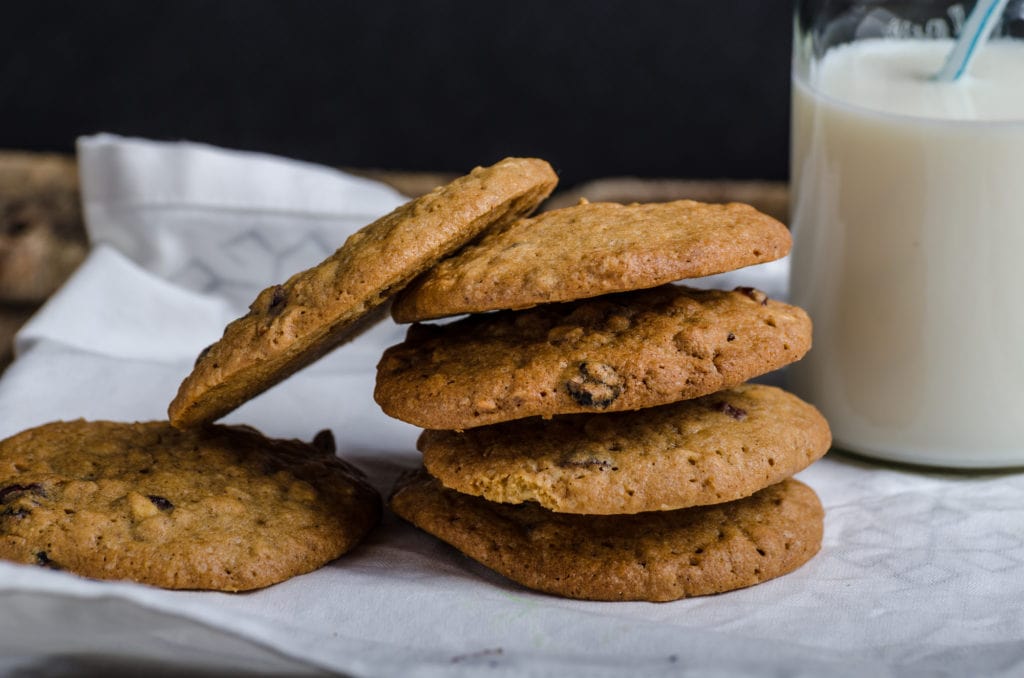
While going to graduate school in Oxford, Joel loved cookies from Ben's Cookies. Before returning to the States, he talked to the owner about opening a branch in Utah. Arriving at an agreement, Joel opened not one but two locations. He partially financed it with his student loans. His partner, Chris, made up the rest.
Unfortunately, it didn't do well. The Orem location closed within two years. The Salt Lake City location did better — it was open for ten years.
However, Joel had spread himself too thin. He worked too much and divided his resources between two different businesses. This likely stunted Kodiak Cake's growth at the time.
Don't spread yourself too thin. Focus and consolidate growth in one business venture at a time.
Frequently Asked Questions
Are Kodiak Cakes worth it?
Compared to similar pancake mix brands, Kodiak Cakes offer healthier, higher-protein alternatives. Many people believe Kodiak Cakes are worth the higher price point.
Who owns Kodiak Cakes?
As the co-founder and CEO of Kodiak Cakes, Joel Clark is the owner of Kodiak Cakes. It was initially solely owned by his brother, Jon Clark, until he sold it to Joel in 1997.
Does Costco sell Kodiak Cakes?
Yes, Kodiak Cakes are purchasable through Costco, either online or in-store.
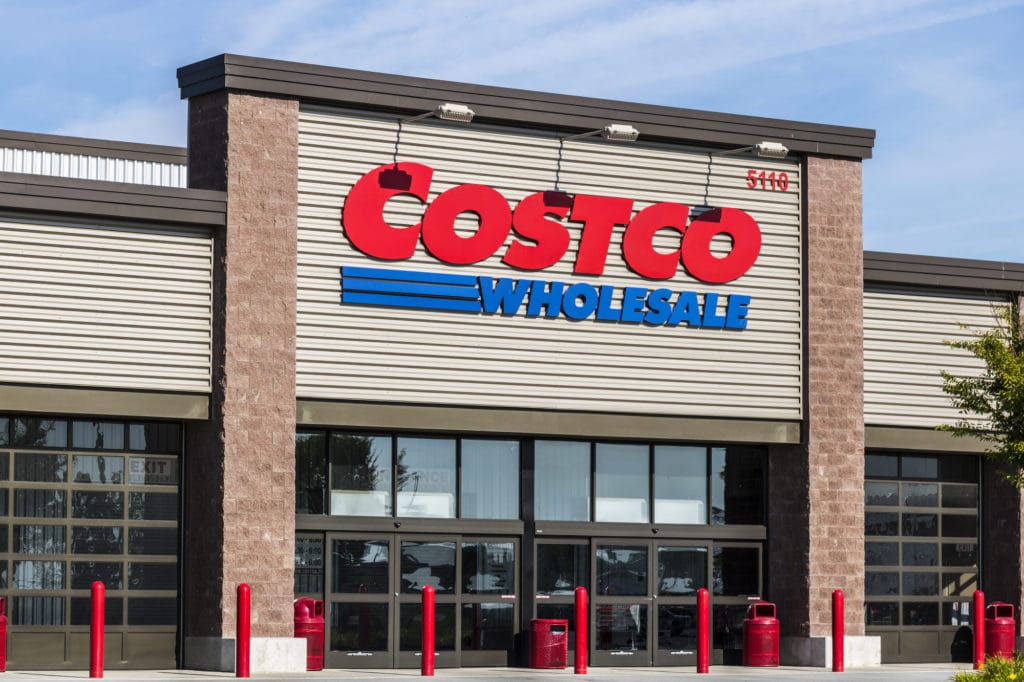
Did Kodiak Cakes get a deal on Shark Tank?
No, Kodiak Cakes did not secure a deal on Shark Tank. Joel Clark proposed a $500,000 for 10% interest in the company. Kevin O'Leary and Barabara Corcoran countered with 50% ownership and Robert Herjavec with 35% ownership. Unable to agree, Joel Clark walked away.
When was Kodiak Cakes on Shark Tank?
Kodiak Cakes was on Season 5, Episode 22 on Shark Tank. The episode aired on April 4, 2014.
How much is Kodiak Cakes worth today?
Kodiak Cakes did $160 million in annual sales in 2020, according to Business Insider. The pancake mix brand now sells graham crackers, protein balls, microwavable flapjack cups, and more.
The Bottom Line
Joel Cark's journey with Kodiak Cakes spans decades. Even without formal business experience, he took over the Kodiak Cakes when his older brother, Jon, wanted to let it go.
After facing countless challenges, including debt, a failed cookie business, and mistakes that cost thousands of dollars, Joel kept going. He even quit a job with a stable income because he was convinced that Kodiak Cakes was the right path.
"Sometimes the obstacles are great, and logic would say, you should quit. But passion can overcome that. It has to."
Joel Clark
